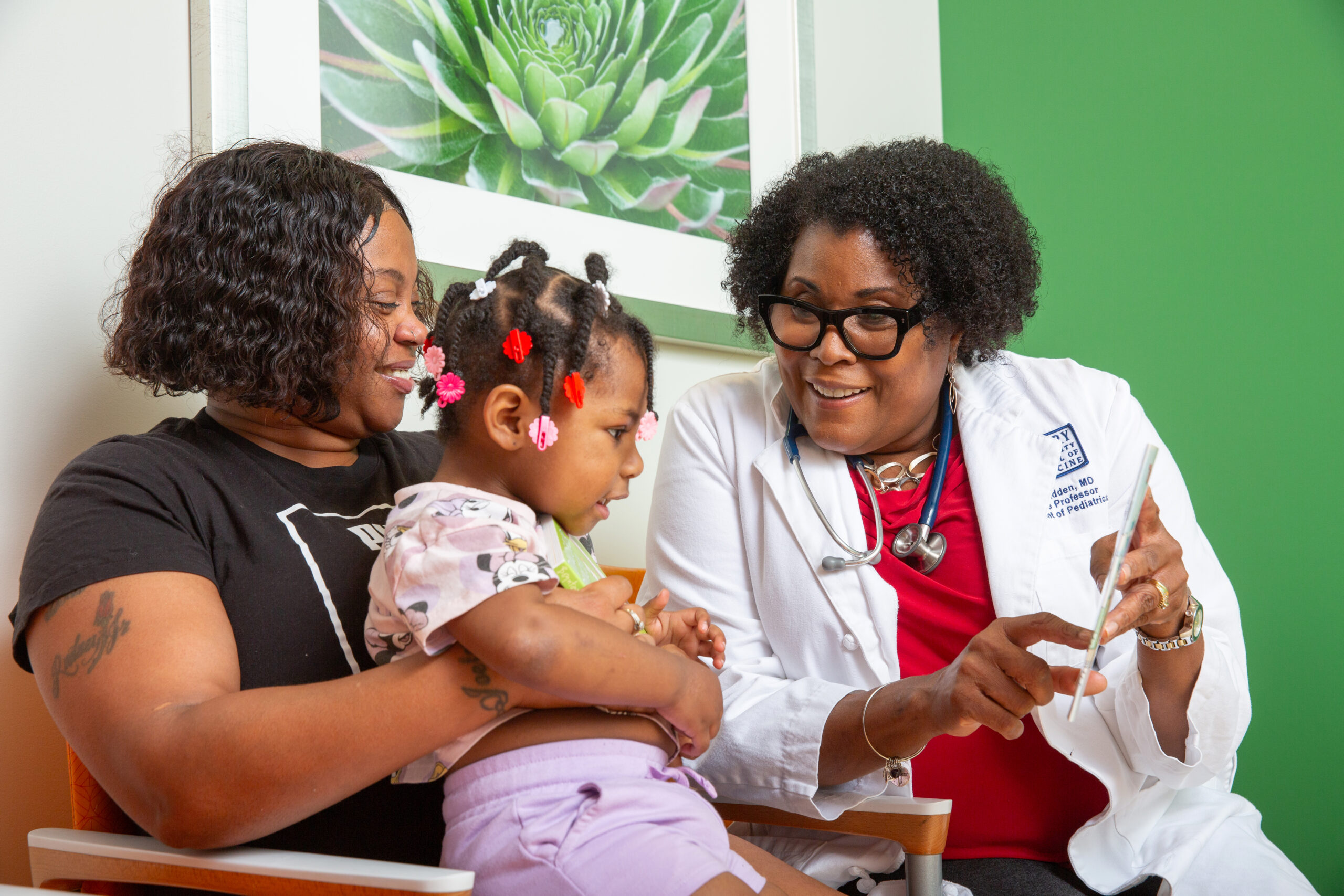A Pediatrician’s Guide to Early Literacy, Healthy Relationships, and Brain Development

Dr. Terri McFadden, MD, FAAP — Reach Out and Read Georgia’s Medical Director and a member of our National Board — is now a monthly contributor to Psychology Today. Her new column, “Reading: Just What the Doctor Ordered,” explores the deep connections between early literacy, healthy relationships, and brain development. Each month, we’ll be rounding up her latest posts here as they go live, offering ongoing insights into why shared reading is one of the most powerful tools for nurturing young children and strengthening families.
Reading, From Cradle to Classroom
How communities can spark a love of reading from birth.
September 5, 2025
Walk into any kindergarten classroom, and you’ll see it right away. Some children arrive eager to dive into books, turning pages with confidence and curiosity, but others are less familiar with the magic of stories. Some children may recognize letters, write their names, and recognize simple words in text, while others lag behind. The difference often traces back to something simple yet profound: whether someone began reading to them at the very start of life.
…
One proven approach begins long before a child steps into a classroom: integrating books and reading guidance into pediatric visits. In this model, used at pediatric clinics like mine in partnership with Reach Out and Read, doctors and nurses give families a book at each well-child checkup, starting at birth. During these visits, I model reading aloud, showing parents and caregivers how to make a book engaging for little ones, how to follow their child’s cues, and how even a few minutes of reading a day can spark joy and connection. I also remind them that reading is a gateway to opportunity and a tool for exploring the world. After all, young children can visit any place on the planet via a book and use their imagination to become any character they find inside a book’s pages. Over time, I see parents begin to associate reading not with homework or obligation, but with nurturing and bonding. The simple act of placing a book in a baby’s hands becomes an investment in their future.
…
We know the stakes are high. A child who hasn’t been exposed to regular reading before kindergarten is at a clear disadvantage, and those gaps can persist for years. But the good news is, the solution is within reach. When communities unite to encourage reading from birth — equipping parents, supporting them with resources, and making reading joyful — we set the stage for lifelong literacy and learning.
…
When we share books with children, we’re not just preparing them to read — we’re showing them the world is theirs to explore and providing the foundation for a lifetime of academic success.
How Reading Helps Pediatricians and Parents Track Milestones
Reading aloud builds cognition, bonds, and resilience.
July 29, 2025
“Is your baby smiling at you?” “Has your baby started crawling?” “Are they babbling?” “Can they wave and play peek-a-boo?” These are the questions I frequently ask parents of my patients as I observe their baby’s development unfold. Parents are proud to share the latest achievements that their babies have made! But there’s one question that often catches parents by surprise: “Do you read together?”
…
Books give us a window into a child’s development in a way few other tools can. When a preschooler pretends to read aloud, they demonstrate emerging literacy, creativity, and memory skills. These seemingly small moments are rich in diagnostic information and help us monitor important milestones in a child’s growth.
My work integrates literacy into the fabric of pediatric care. At every checkup, we provide families with an age-appropriate book and observe how the child engages with it. We look for signs of curiosity, social interaction, and verbal or nonverbal attempts to communicate. These observations help us recognize normal developmental patterns and can also alert us to potential issues, often before they escalate into more significant concerns. More importantly, this interaction allows me to praise the child’s accomplishments and celebrate the parent, and remind them of the wonderful job that they are doing.
…
When parents ask me how they can support their child’s growth, I keep my answer simple: Talk with them, listen to them, and read with them. The stories you share become part of your child’s developmental story. They help shape how your child learns, feels, and relates to the world.
…
When we gift a book to a child and model reading aloud to their caregiver, we’re doing more than promoting literacy — we’re supporting healthy brain development, strengthening caregiver-child bonds, and laying the foundation for children to thrive from the very beginning. And believe it or not, we are laying the foundation for healthy families and healthy communities.
Books as Medicine
Personal Perspective: Early literacy is a public health imperative.
June 11, 2025
As a pediatrician, I’ve long understood that literacy is not just an academic skill — it’s a vital developmental sign. In the exam room, alongside questions about sleep, vaccines, and nutrition, I ask about reading routines. That’s because brain development in early childhood is not a passive process. It’s actively shaped by human connection, responsive interactions, and, perhaps most powerfully, the simple act of reading aloud.
…
Ultimately, we all have a stake in this. Low literacy rates are tied not only to poor educational outcomes, but also to long-term health disparities, mental health challenges, and economic instability. The science is clear, and so is the solution. Early literacy is one of the most cost-effective, evidence-backed interventions we have for improving population health.
So tonight, pick up a book. Share a story. And know this small act has profound ripple effects. When you read with a child, you’re not just preparing them for school, you’re strengthening their brain, your bonds, and our collective future.
